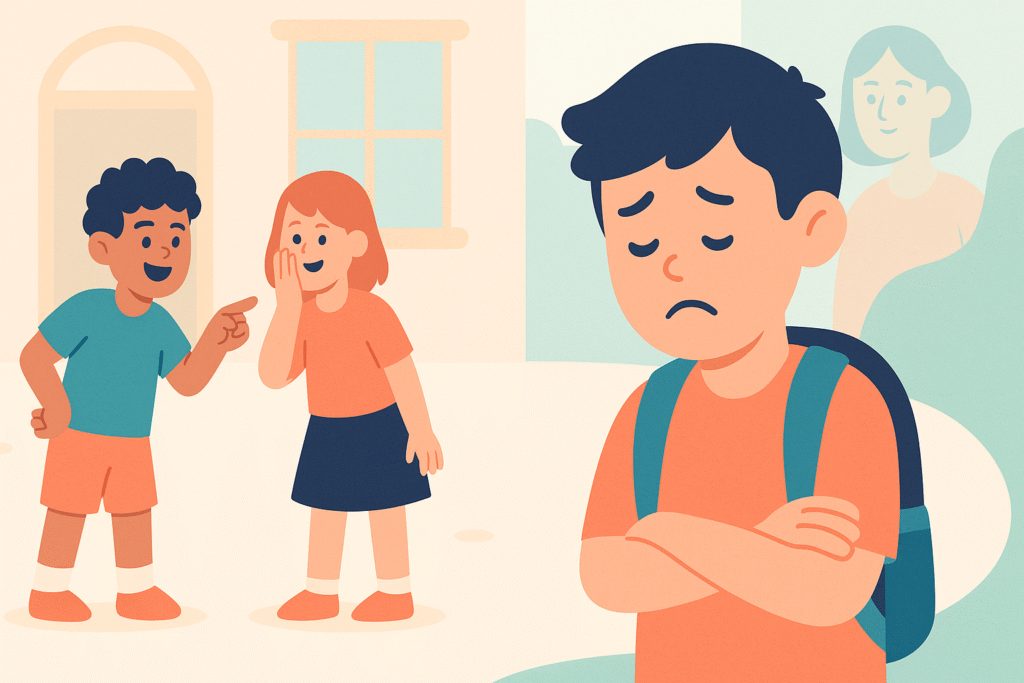One of the worst nightmares for any parent is discovering that their child is being bullied. And it can happen anywhere — at school, on the bus, in the playground — the list is endless.
A close friend of mine faced this terrifying situation. Her four-year-old daughter was being physically bullied by an older boy on her school bus. Every afternoon, the little girl would return home crying, sometimes with visible bruises on her body. What made it worse was that the bus nanny, instead of protecting her, would scold her into silence.
At first, my friend didn’t take it too seriously. She hoped it would sort itself out — as many of us parents do — partly because we fear being labelled as “overprotective.” I’ve felt that hesitation too: the self-doubt that maybe we’re overreacting or imagining things.
But soon, things got worse. Her once cheerful, confident daughter began withdrawing into a shell. The child who used to love school and shine in class now dreaded waking up in the morning.
When my friend finally confronted the bus nanny, she flatly denied that anything was happening. Meanwhile, her daughter’s confidence was slipping away. She became anxious, timid, and terrified — especially of the boy and the nanny who had failed to protect her.
That was the breaking point. My friend decided to take the matter to the school authorities. Sadly, the response she got was far from supportive. The school dismissed her concerns, accusing her of “making up stories.” But my friend refused to give up. She stood firm, armed with her daughter’s class teacher’s feedback — which described her child as intelligent, honest, and never known for lying.
Eventually, the truth surfaced. The bullying had indeed happened — and shockingly, the bus nanny was also the boy’s class nanny, which explained her bias. The school was forced to take disciplinary action, and thankfully, the bullying stopped soon after. Over time, her daughter slowly regained her confidence and joy.
All’s well that ends well?
Not quite. Because, as my friend later realized — this painful episode might have been prevented had she acted sooner. Her daughter could have been spared weeks of fear and humiliation.
So, what should parents do if they suspect their child is being bullied?
🌼 1. Trust Your Instincts and Believe Your Child
You know your child best. If your gut tells you something isn’t right — listen. Children rarely lie about such experiences, and a mother’s instinct is almost always accurate.
🌈 2. Stay Calm, Stay Positive
Your reaction sets the tone for your child. If you remain composed and confident, your child feels safer and stronger. Anxiety or anger can make them more fearful — so approach the situation with calm determination.
💬 3. Reassure Your Child It’s Not Their Fault
Many children blame themselves for being bullied. Make sure your child knows that nothing justifies such behavior. They did not “invite” it, and they are not weak for feeling hurt.
🧠 4. Teach Practical Responses
Help your child practice simple, assertive ways to respond — without being aggressive. For example:
- “Please stop doing that.”
- “I don’t like it.”
- “I’m going to tell my teacher.”
You can also encourage them to walk away or act unimpressed — often, bullies thrive on reactions. But if the situation doesn’t improve quickly, escalate it immediately to teachers or school authorities.
🚫 5. Don’t Worry About Labels
As parents, we often hesitate to speak up — fearing we’ll be called “overprotective” or “helicopter parents.” But remember, your child’s safety and emotional well-being are far more important than anyone’s opinion.
Even if others don’t support you, stand your ground. You are your child’s only true advocate.
💖 In the End
Bullying is never “just a phase.” It can deeply affect a child’s self-esteem and sense of safety for years to come. It’s crucial to take it seriously, act early, and show your child that they are protected and believed.
Let’s teach our children that kindness is strength — and that standing up against cruelty, for themselves and others, is something to be proud of.
Because every child deserves to feel safe, valued, and heard.

